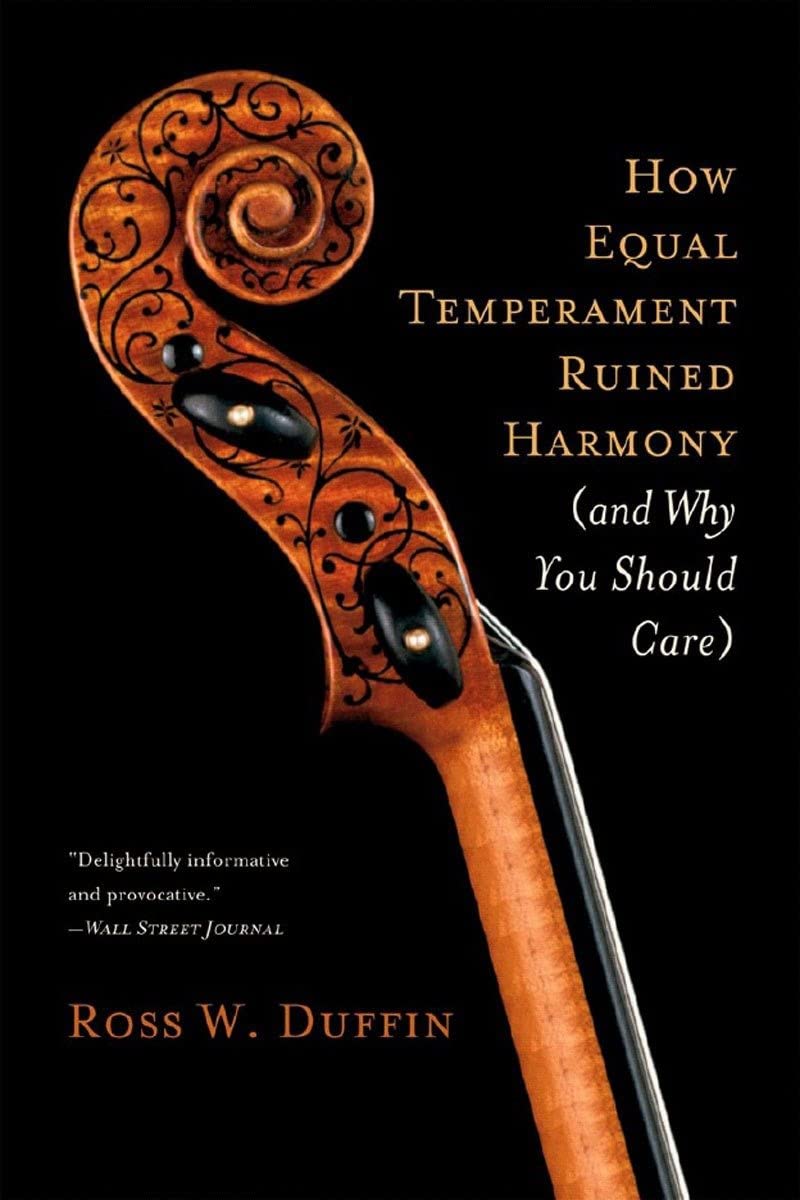Following on from my last post, I was starting to get annoyed by the way I’d chosen to represent note frequencies. For example:
Tempo::new(2, 250).using(&BELL, 3).play(1.0, 0.25, B, 4).play(1.25, 1.0, E, 4).build()
I’d been represeting B4 as two separate values: a frequency and an octave. That permitted me to just define each letter-note once, and rely on math rather than specification to make everything work. However, when I start to get to solutions like this:
// r is root, r_o root octave, a is the first walk-up note, b is the second
fn bass_bar((r, r_o): (f32, i32), (a, a_o): (f32, i32), (b, b_o): (f32, i32))
-> Vec<(f32, f32, f32, i32)> {
vec![(1.0, 1.0, r, r_o), (2.5, 1.0, r, r_o), (4.0, 0.5, a, a_o), (4.5, 0.5, b, b_o)]
}
Tempo::new(4, 120).using(&BASS, 0)
.bar(1).phrase(bass_bar((A, 1), (E, 0), (Gs, 0)))
.bar(2).phrase(bass_bar((A, 1), (A, 1), (Gs, 0)))
.build();
Having to provide tuples and destruct them to get their constituent parts… I’m now thinking I want to change my approach. I don’t particularly mind having 88 constants - maybe even upwards of that! - if they’re simply defined and simple to use: the relative importance of the use-cases vs the declaration-site has changed.
Scaling Musical Scales
So, before I start changing all my notes from ignoring the octave to including it in the name, using scientific pitch notation (which it turns out I’d gotten wrong first time round: each octave starts at C, not A)… how do my notes look at the moment?
pub const A: f32 = 220.0;
pub const As: f32 = 233.082;
pub const Bb: f32 = As;
pub const B: f32 = 246.942;
pub const C: f32 = 261.626;
...
Okay, so I’m defining a bunch of specific, hard-coded values. That’s… fine, I guess? But I’d rather show my working. A# is 2^(1/12) of the frequency of A, so why don’t I just say that explicitly?
pub const As: f32 = A * 2.0_f32.powf(1.0/12.0);
error[E0015]: cannot call non-const fn `std::f32::<impl f32>::powf` in constants
--> src/audio/notes.rs:4:33
|
4 | pub const As: f32 = A * 2.0_f32.powf(1.0/12.0);
| ^^^^^^^^^^^^^^
|
= note: calls in constants are limited to constant functions, tuple structs and tuple variants
Oh. I probably tried last time and got the same error. It’s slightly annoying that powf isn’t a constant function,
it feels like it should be? But I’m not about to go implementing my own version of powf just to clean up my list of
notes.
So, I guess I could calculate each of the note offsets, or look them up, and use that in how I define notes going forward. I mean, I could use these values I’ve already calculated, but I’d ideally like to switch from this approach to something more like:
// reference tone
const Octave4: f32 = 440.0
pub const A: f32 = 1.0;
pub const As: f32 = 2.0_f32.powf(1.0/12.0); // yes I know I can't but that's what I'd ideally intend
...
pub const A4: f32 = Octave4 * A;
pub const As4: f32 = Octave4 * As;
...
i.e., have standard offsets for each letter-note and apply those to the octave for each absolute note. So: pre-calculate (or look up) and bake in?
Well, now I’m thinking about it, maybe that’s not what I want.
I’m Not Sure I Have The Right Temperament For This
All that 2^(1/12) stuff is how musical notes’ frequencies relate to each other… in 12-tone equal temperament, 12TET for short. There’s actually more than one way to tune a cat, and over time musicians have generally converged on 12TET as a versatile compromise (largely due to the influence of the piano), which is always slightly out of tune but not enough to really notice, as opposed to other systems of intonation which can be perfectly in tune for most intervals but badly out of tune for others.
If this sounds interesting, I recommend How Equal Temperament Ruined Harmony (And Why You Should Care) - it’s a fascinating read, especially if you like both music and math.

It would probably be a good idea to use 12TET if I wanted a general music system, allowing me to write arbitrary music in an arbitrary key. But I’m not intending to write arbitrary music in an arbitrary key, I’m going to write a very small number of pieces and know what key they’ll be in, in advance. So… I could instead use just intonation, and the intervals will be that bit purer, sound that bit better… and also, the maths will be easier.
pub const C: f32 = 1.0;
// under 12TET: messy, difficult to understand, doesn't even compile!
pub const G_12TET: f32 = 2.0_f32.powf(7.0/12.0);
// under just intonation: a perfect pythagorean ratio!
pub const G_JUST: f32 = 3.0/2.0;
I’m not trying to justify changing the way music works just to make the maths easier and work around a compiler limitation.
But if I hadn’t been thinking about how to make the maths easier and work around a compiler limitation, this wouldn’t have occurred to me, which at the very least will be an interesting musical experiment.
Ok, time for some dinner, then I’ll flesh out 88 constants…